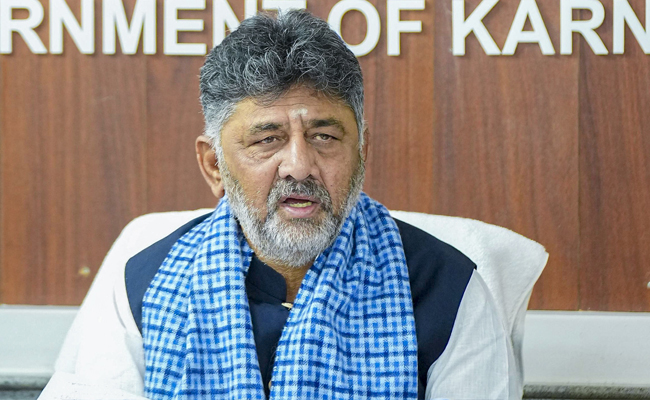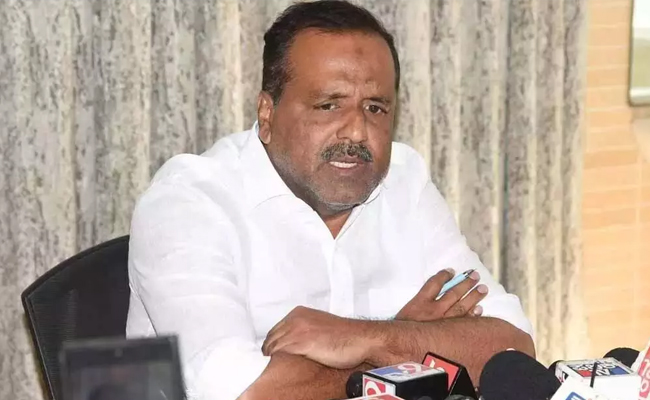Washington, Nov 14 : President Donald Trump on Tuesday tapped John Abizaid, a top US general from the Iraq war who has studied the Middle East for years, as ambassador to Saudi Arabia amid growing friction between the longstanding allies.
Abizaid is a fluent Arabic speaker of Lebanese Christian descent who headed US Central Command -- which covers the Middle East -- during the Iraq war from shortly after the US invasion in 2003 through 2007.
The 67-year-old wrote his master's thesis at Harvard University about Saudi Arabia, studying how the kingdom makes its decisions on defense spending, in a paper that won acclaim in academic circles.
A California native, Abizaid graduated from the US Military Academy at West Point and later won a scholarship to study in Jordan, where he honed his Arabic, which he did not speak as a child.
Trump has been slow in filling key posts amid his promises to shake up Washington. But the absence of an ambassador in Riyadh, nearly two years into his presidency, has become more glaring amid rising tensions between the countries.
Trump, who quickly forged a close relationship with Saudi Arabia upon taking office, has been forced to criticize the kingdom and its powerful crown prince, Mohammed bin Salman, after a team from the kingdom killed a US-based critical journalist, Jamal Khashoggi, inside the Saudi consulate in Istanbul.
Amid a US souring on the heir apparent, the United States has also curbed cooperation and demanded a halt to the Saudi-led military campaign against rebels in Yemen that has contributed to a humanitarian crisis believed to be the worst in the world.
But US pleas -- made by telephone rather than in person by an ambassador -- have failed to sway the Saudis.
Abizaid requires confirmation from the Senate, which would appear likely as the retired four-star general has long enjoyed respect in Washington.
Shortly after taking over as CENTCOM commander, Abizaid told reporters that US forces were facing a "classical guerrilla-type campaign" from remnants of Saddam Hussein's Baath Party.
His choice of words contradicted his bosses, who initially tried to portray the Iraq invasion as a quick victory, but then defense secretary Donald Rumsfeld did not move to replace him amid admiration for Abizaid's skills.
And soon after retiring in 2007, Abizaid said that, while the United States should try to prevent Tehran from obtaining a nuclear weapon, "there are ways to live with a nuclear Iran," describing the clerical state's behavior as rational and noting the United States also dealt with a nuclear-armed Soviet Union.
Trump has championed a hard line on Iran, Saudi Arabia's regional rival.
The real estate mogul turned president has shown a fondness for appointing retired generals, with Jim Mattis as defense secretary and John Kelly as his chief of staff.
Let the Truth be known. If you read VB and like VB, please be a VB Supporter and Help us deliver the Truth to one and all.
Mangaluru (PTI): A high-level committee constituted by the Karnataka government to study the framework adopted by Andhra Pradesh for recognising Urdu as a second official language has submitted its report, backing the state’s move to accord similar status to Tulu.
The six-member panel, headed by K M Gayatri, former Director of the Kannada and Culture Department, examined the procedures followed by the Andhra Pradesh government before granting second official language status to Urdu, officials said on Wednesday.
The committee undertook a field visit to the Andhra Pradesh Secretariat on January 19 and 20 and held consultations with senior officials to understand the legal provisions, administrative mechanisms, and implementation benchmarks involved, they said.
The panel also included Tharanatha Gatti Kapikad, president of the Karnataka Tulu Sahitya Academy, in an advisory capacity.
The report, along with a detailed note outlining Tulu’s historical, linguistic, and cultural significance, was submitted to J Manjunath, Secretary, Kannada and Culture Department, at Vikas Soudha here.
According to official sources, the study was aimed at gathering inputs to help Karnataka frame criteria and procedural guidelines if it decides to grant second official language status to Tulu.
Senior officials present at the submission included B S Manjunath Swami, Director of the Kannada and Culture Department; representatives of the Law Department and the Personnel and Administrative Reforms Department; and office-bearers of various state academies.
Tulu is predominantly spoken in the coastal districts of Dakshina Kannada and Udupi, and in parts of Kasaragod in neighbouring Kerala.
The demand to accord it second official language status in Karnataka has been raised by cultural organisations for several years.





